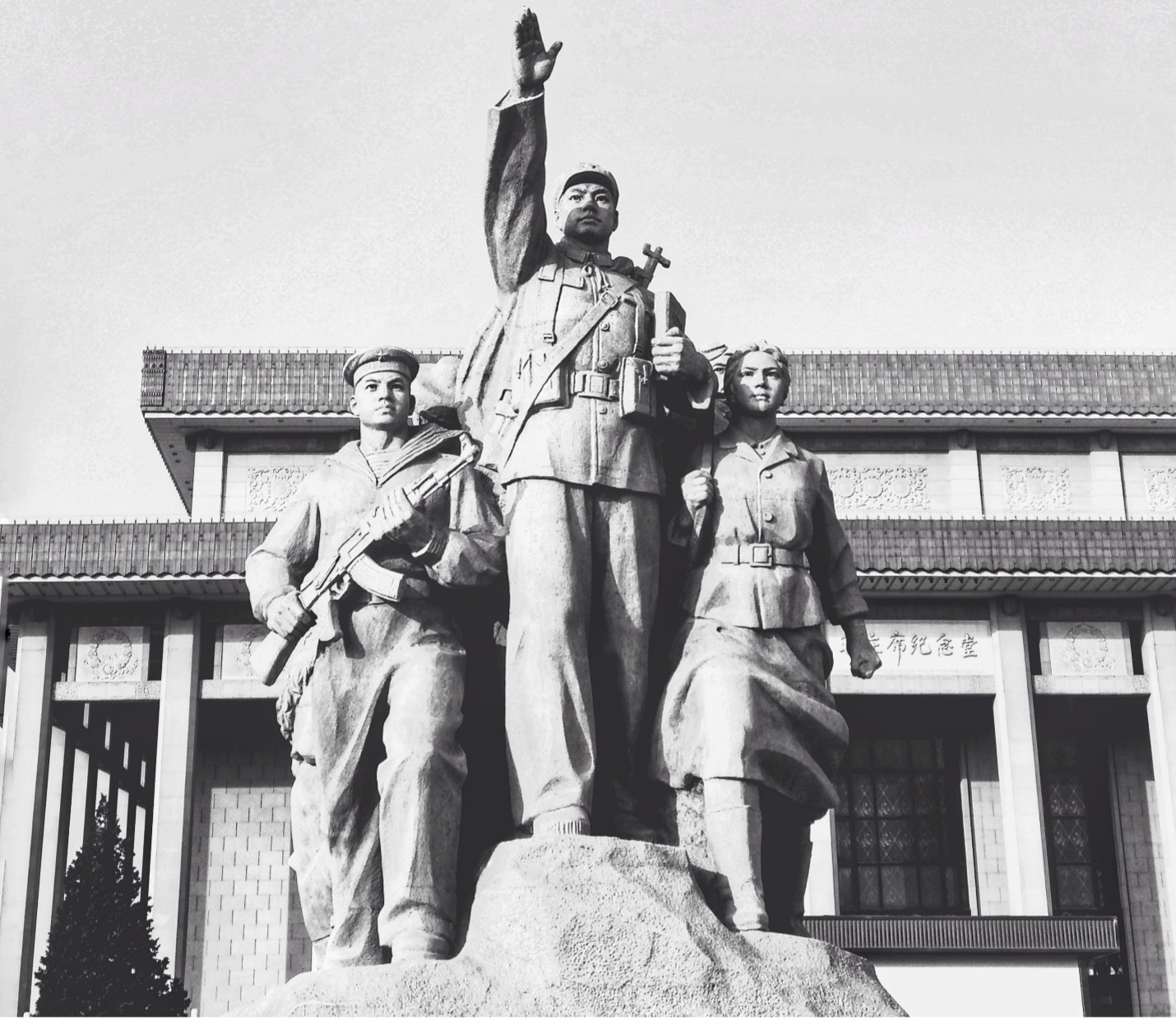
The Legacy of Irregular Warfare Masters
Sal Artiaga – Irregular Warfare Practitioner
Engulfed within the nebulous terrain that delineates the boundaries of irregular warfare, a domain characterized by its defiance of conventionality and its asymmetrical tactics, we find ourselves confronted with a pantheon of enigmatic leaders whose tales are etched in the annals of history. These leaders, whose inherent amalgamation of idiosyncratic traits and characteristics demarcates them from their contemporaries, also serve as indomitable beacons illuminating the path toward victory. While history has lauded leaders like Mao Zedong, T.E. Lawrence, Michael Collins, and Vo Nguyen Giap for their contributions in this arena, a closer examination of their strategies reveals both triumphs and controversies that surrounded their methods. The following discussion aims to dissect and reveal the finely woven tapestry that captures the essence of these historical giants, highlighting unique qualities that have immortalized their respective contributions to irregular warfare, while also revealing the threads that bind them together.

The Confluence of Adaptability and Innovation Epitomized by Mao Zedong
An inimitable figure whose colossal shadow continues to loom large over the rich tapestry of the Chinese Communist revolution, Mao Zedong was a quintessential embodiment of the symbiotic confluence of adaptability seamlessly intertwined with an unyielding spirit of innovation. His intricate collection of guerrilla warfare tactics stands as a testament to his unparalleled malleability and innovative strategic acumen in navigating the ever-shifting sand dunes of the warfare landscape. Armed with an astute comprehension of the multifarious socio-political intricacies that shaped the tumultuous epoch of the Chinese Civil War, Mao astutely adapted his guerrilla warfare strategies in alignment with the needs of the populace, thereby securing their unwavering allegiance and support. However, it is essential to note that his tactics, while effective, also contributed to significant civilian upheaval and suffering. These tactics include but are not limited to forced collectivization and the Great Leap Forward, violent land reforms, and the cultural revolution. Acknowledging these dual aspects of Mao’s leadership offers a more nuanced understanding of his legacy. Mao’s groundbreaking masterpiece on the complex web of guerilla warfare is still read today, serving as a lasting reminder of his strategic acumen.
T.E. Lawerence, a Marriage of Visionary Leadership with Strategic Intelligence
The name T.E. Lawrence, or Lawrence of Arabia, as he is more popularly known, stands as a colossal edifice within the hallowed halls of history, symbolizing the marriage of visionary leadership with strategic intelligence. His crucial leadership position as the helmsman guiding the Arab Revolt during the turbulent storm of the First World War was unquestionably marked by an extraordinary strategic acumen and a visionary leadership style that went above the norm. Together with his unmatched military prowess, Lawrence’s intricate knowledge tapestry, woven from the cultural and social insights gleaned from the Arabian Peninsula, proved instrumental in uniting the disparate and fractious Arab tribes, enabling them to mount a formidable and cohesive campaign against the might of the Ottoman Turks. Nevertheless, Lawrence’s strategies sometimes led to tribal tensions, a fact often overlooked by romanticized historical accounts. An objective analysis recognizes both his strategic ingenuity and the post-war challenges his approach created. Still, his unique and innovative approach, which synthesized traditional Arab guerrilla warfare tactics with the modern aspects of contemporary military strategy, underscored his foresight. This intuition was evident in his profound cultural understanding, his development of innovative military tactics, his strategic vision for the region, and his anticipation of the conflict’s long-term implications. By blending traditional and modern elements in a manner that was ahead of his time, Lawrence left a lasting impact on both military strategy and the history of the Middle East.
Michael Collins as the Paragon of Resourcefulness and Charismatic Leadership
Emerging from the fog of history, Michael Collins stands tall as a paragon of resourcefulness and charisma, his leadership proving pivotal in galvanizing the Irish masses and channeling their collective discontent and abhorrence of British imperialism into a resolute and unwavering fight for the cause of independence. Collins, with his innovative guerrilla warfare tactics, ingeniously employed the limited resources at his disposal to create real turbulence that kept the British forces in a perpetual state of tumult and disarray. While he is celebrated for his leadership, it is also critical to address the ethical considerations of such tactics, which often blur the lines between combatants and non-combatants. Still, his charismatic demeanor, coupled with his impeccable leadership style, endeared him to the Irish populace, thereby further cementing his exalted status in the annals of irregular warfare history. He was known for his approachability, his commitment to the Irish cause, and his ability to inspire those around him. This popularity extended beyond his life, as he became a symbolic figure for Irish independence and resistance.
The Vietnamese Maestro Vo Nguyen Giap, the Embodiment of Cultural Insight
The hallowed name of Vo Nguyen Giap continues to reverberate as a synonymous emblem representing the historic Vietnamese triumphs over both the imperialistic clutches of the French and the juggernaut of American forces. The distinguishing hallmark that set Giap apart from his contemporaries was his profound cultural insight and an empathetic connection that he forged with the very soul of the Vietnamese people. His military strategies, while deeply ensconced in the foundational bedrock of guerrilla warfare principles, were exponentially enhanced, and amplified by his cultural awareness and empathy, thereby enabling him to forge a robust support base amongst the local populace. This empathetic approach towards understanding and sharing in the trials and tribulations of the Vietnamese people stood as a pivotal linchpin in solidifying the unwavering support for both the Viet Minh and the North Vietnamese Army. Giap’s strategy of “People’s War” exemplified his empathetic understanding of the Vietnamese people. This strategy relied heavily on the support and participation of the rural peasantry. Giap understood that for the war to be successful, it was essential to win the hearts and minds of the Vietnamese people, particularly the peasants who formed most of the population. He worked to educate and mobilize them, not just as soldiers but also as logistical support and intelligence gatherers. However, the human cost of these strategies was considerable, and Giap’s role in these outcomes must be part of the assessment.
Comparative Analysis
The following table compares the strategies, contexts, and outcomes associated with each leader:
| Leader | Strategy | Context | Outcomes |
| Mao Zedong | Guerilla warfare, Mass mobilization | Chinese Civil War | Victory, but with civil strife |
| T.E. Lawrence | Unifying disparate groups, Mobile warfare | Arab Revolt during WWI | Short-term success, long-term instability |
| Michael Collins | Intelligence network, Hit-and-run tactics | Irish War of Independence | Independence, with ethical debates |
| Vo Nguyen Giap | Protracted engagement, Popular support | First Indochina War, Vietnam War | Victory, with heavy casualties |
Practical Applications for Modern Strategic Thought
The study of these historical leaders is not solely academic. Modern irregular warfare practitioners can derive several practical applications from their experiences:
- The necessity of adaptability in strategy as political and social landscapes evolve.
- The importance of winning hearts and minds, alongside more tangible military objectives.
- The ethical implications of guerrilla tactics and their long-term effects on peace and stability.
- The value of cultural understanding in shaping both military strategies and post-conflict resolutions.
Legacy
In the final analysis, as we traverse the intricate labyrinth that characterizes the rich and diverse traits of these four illustrious figures of irregular warfare history, it becomes manifestly clear that the resulting landscape is indeed multifaceted. The intricate interplay of adaptability, strategic foresightedness, resourcefulness, cultural insight, and empathy were not merely superficial attributes, but rather, they stood as the very bedrock upon which their storied successes were meticulously built. These iconic figures, namely Mao Zedong, T.E. Lawrence, Michael Collins, and Vo Nguyen Giap, not only set themselves apart from the mosaic of their contemporaries but also indelibly etched their legacies in the timeless and boundless expanse of irregular warfare history. The insights gleaned from this meticulous dissection of their characteristics is not merely an academic exercise relegated to the dusty shelves of history, but rather, it is an imperative necessity, for it provides us with a lantern to illuminate our path and guide us through the realm of irregular warfare, thereby equipping us with the requisite arsenal needed to traverse this battlefield victoriously.
